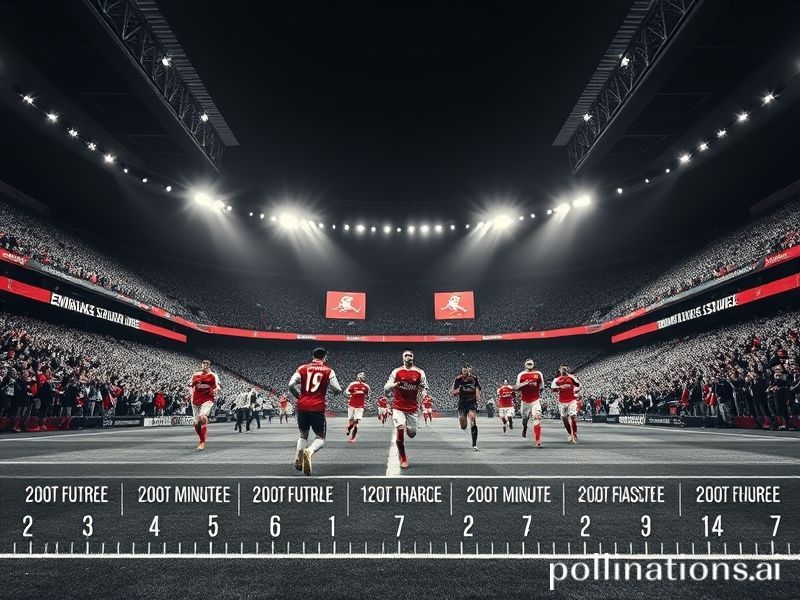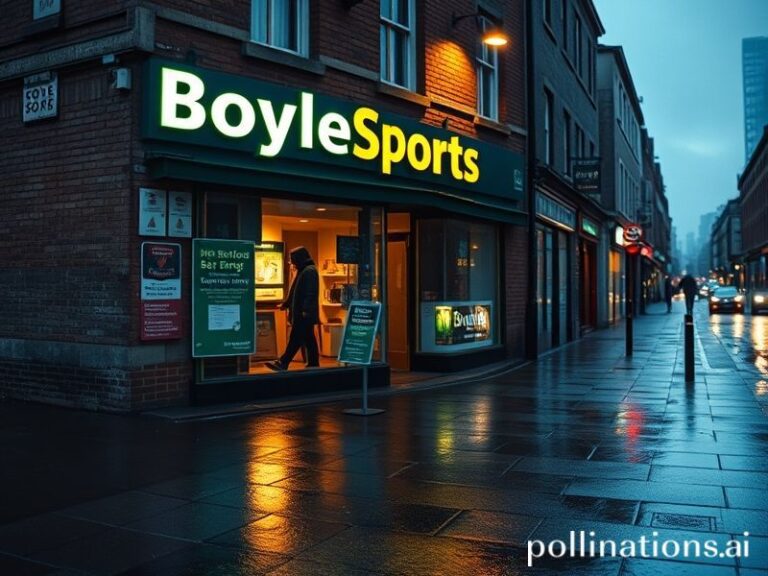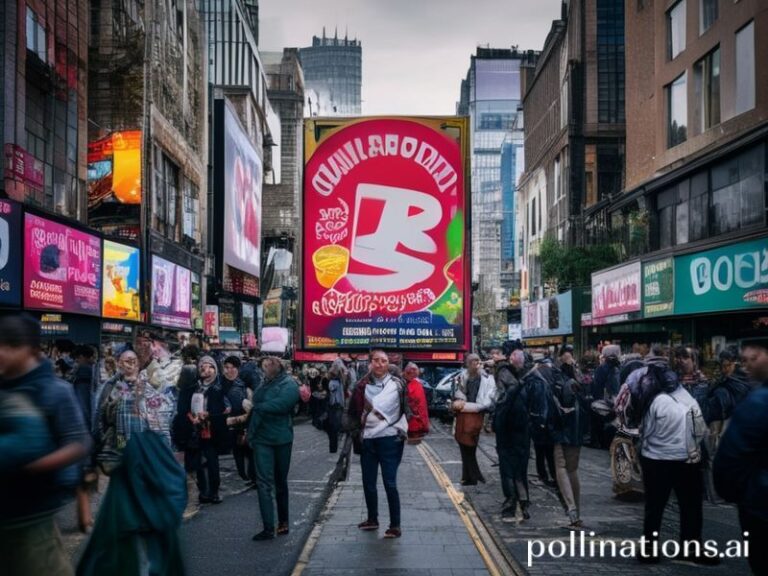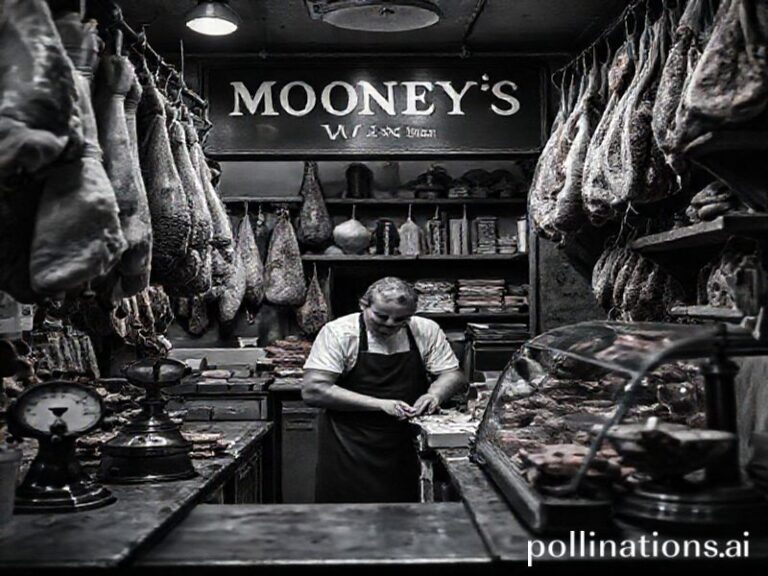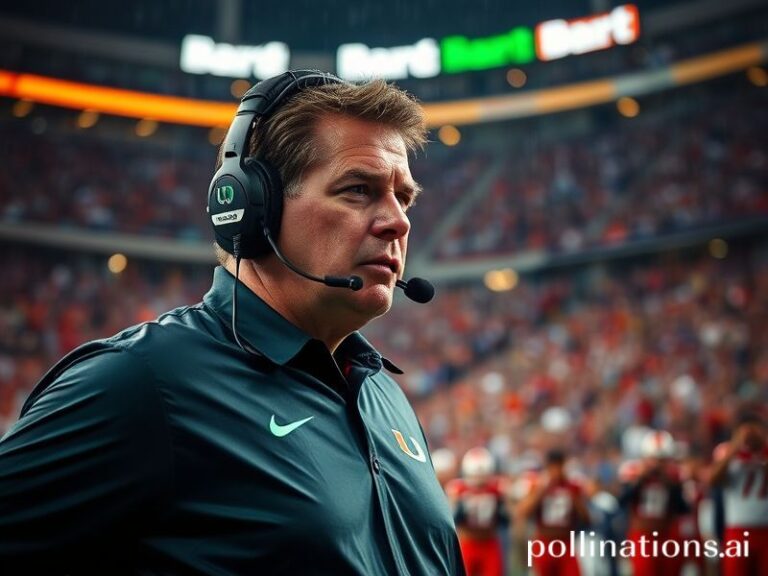From Wembley to World Collapse: Arsenal vs Forest Timeline as Global Metaphor
Arsenal F.C. vs Nottingham Forest: A Timeline of Hope, Hubris, and the Slow Unraveling of Civilization
By Our Man on the Touchline, Watching the World Burn One VAR Decision at a Time
Arsenal versus Nottingham Forest sounds, to the uninitiated, like a quaint English domestic—two sets of fans politely disagreeing over whose turn it is to sing “It’s coming home.” Yet zoom out far enough and the fixture becomes a handy chronometer for measuring the planet’s descent into late-stage capitalism, algorithmic officiating, and the universal habit of blaming everything on the Germans. Below, a concise timeline of every encounter that truly mattered (or at least felt like it at 2 a.m. in Singapore).
1979 League Cup Final – The Empire’s Last Civilised Scream
At Wembley, the last place on earth still using imperial measures, Arsenal beat Forest 3-2. Brian Clough chain-smokes on the touchline while Margaret Thatcher chain-smokes the miners. Oil prices double, Iran topples the Shah, and somewhere a young Sepp Blatter jots down “World Cup every two years?” in a Moleskine. Coincidence? Ask the ghost of the British car industry.
1991 – The Year Punk Broke (and So Did Arsenal’s Defence)
Forest win 3-0 at the City Ground. The Soviet Union collapses three weeks later. Arsenal fans insist this was unrelated. Meanwhile, satellite dishes sprout across the Balkans like mushrooms after a rain of cluster bombs; everyone tunes in for the highlights. Globalisation has arrived, and it’s wearing Andy Cole’s first professional contract.
1999 – The Invincibles-to-Be Meet the Y2K Bug
A 1-1 draw at the old Highbury. Arsène Wenger’s side is “two years away from greatness” (spoiler: five). The dot-com bubble inflates faster than David Seaman’s ponytail. In Jakarta, brokers watching on pirated feeds decide football futures are safer than Pets.com stock. They are wrong, but at least the kits are recyclable.
2005 – The Last Day of the Analogue World
Thierry Henry scores a hat-trick; Arsenal win 7-0. YouTube launches two months later; the highlights rack up a million views before anyone figures out the copyright. Somewhere in Silicon Valley, a hoodie-clad intern mutters, “If we can monetise this, we can monetise oxygen.” He will. We will.
2017-18 – The Video Referee Arrives, Humanity Leaves
Forest dump Arsenal out of the FA Cup in the third round. VAR is trialled elsewhere, but not here; the injustice feels purer, more artisanal. That same week, Bitcoin crests $17,000, proving that if you can’t trust a linesman, you can definitely trust an encrypted string of code mined in Ulaanbaatar.
2020 – Behind Closed Doors, Much Like Real Life
COVID-19 forces the Premier League into bio-secure bubbles. Arsenal win 2-1 at an echoing Emirates. Commentators call it “a victory for the human spirit,” a phrase also used to sell premium hand sanitiser. Amazon Prime streams the match in 4K to living rooms where the only other sound is the blender making banana bread.
2022 – The Energy Crisis Derby
Arsenal lose 1-0 at the City Ground. Kick-off is delayed 30 minutes because local police are busy guarding a petrol station. European governments announce gas-rationing plans that suspiciously resemble football’s away-ticket allocation system: first come, first served, unless you know a guy.
2023 – The Year of the Saudi Takeover That Wasn’t
Forest, freshly promoted, hold Arsenal to a draw. Rumours swirl that Prince Mohammed bin Salman considered buying the club before deciding LIV Golf was a better hobby. Somewhere in Riyadh, a consultant bills $400k for a PowerPoint titled “Leveraging Cross-Cultural Brand Synergies via 4-4-2.”
Global Implications, or How to Lose Faith in Chronology
Each meeting is less about the scoreline and more about the ambient noise of geopolitics. Forest’s resurgence coincides with Britain’s quest for post-Brexit relevance; Arsenal’s title challenges mirror the periodic delusion that liberal democracy is just one transfer window away from perfection. Meanwhile, betting markets in Lagos price the next managerial sacking in real time, and Chinese streaming giants auto-translate “Wenger Out” into Mandarin for 1.4 billion people who’ve never seen Highbury.
Conclusion
In the end, the fixture is a Möbius strip of hope and disappointment, played on grass that might as well be astroturf atop a dying planet. Whether Arsenal win 5-0 or Forest nick a 94th-minute header, the Dow will still wobble, the ice caps will still sulk, and we’ll all queue for overpriced pale ale to wash down the existential dread. But at least the clock keeps running—until VAR decides to check it.

